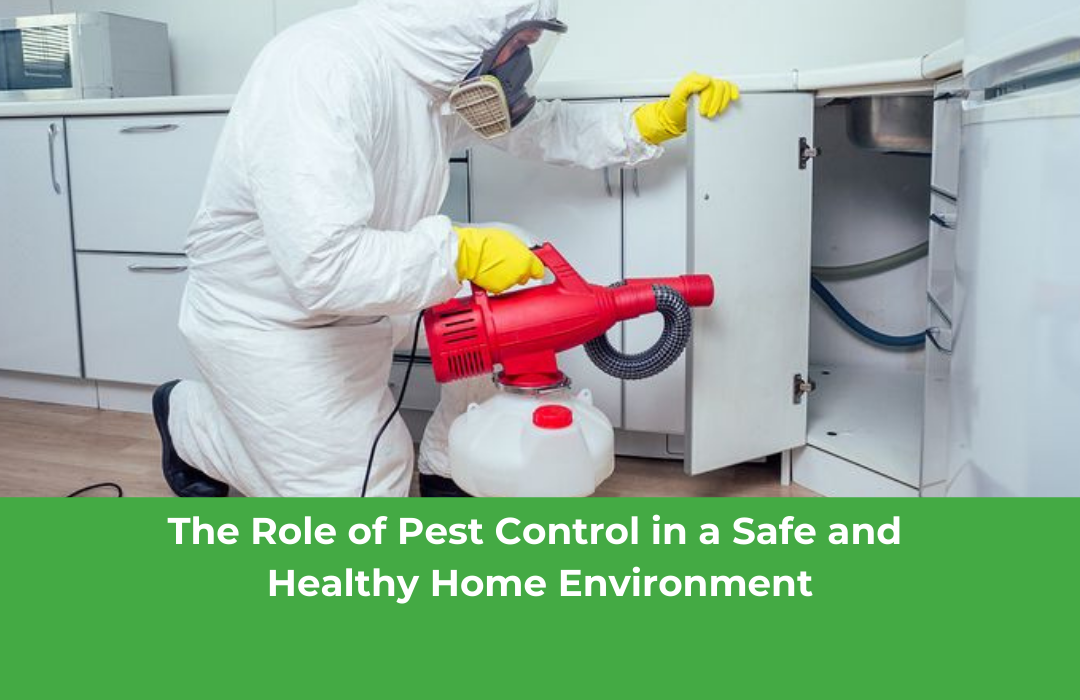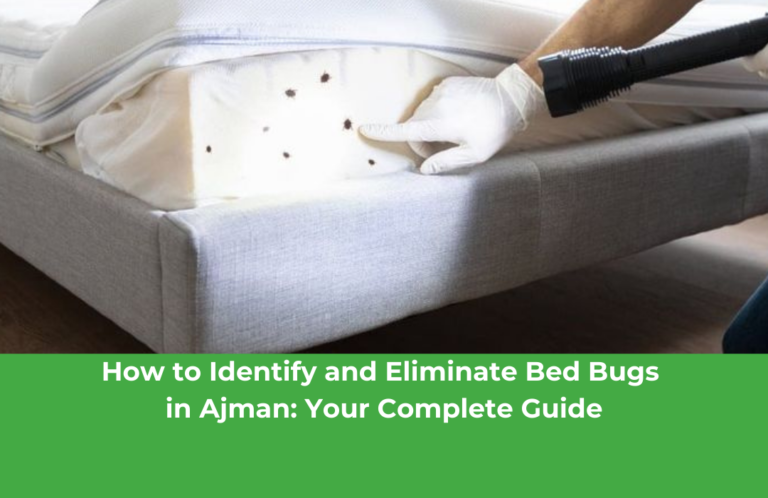The Role of Pest Control in a Safe and Healthy Home Environment
A safe and healthy home is something we all strive for, yet it’s often taken for granted. From maintaining clean air to ensuring that food is safe to eat, we do everything possible to protect our living space. However, one often overlooked factor in a healthy home is pest control. Pests can not only damage…
A safe and healthy home is something we all strive for, yet it’s often taken for granted. From maintaining clean air to ensuring that food is safe to eat, we do everything possible to protect our living space. However, one often overlooked factor in a healthy home is pest control. Pests can not only damage your property, but they can also affect your health in ways you may not immediately recognize.
In this blog, we’ll explore how pest control plays a crucial role in creating a safe, healthy living environment for you and your family.
1. Pests and Health Risks: Why Pest Control Is a Necessity
Pests, both visible and hidden, can cause a variety of health issues. In fact, many common pests are vectors for diseases and allergens that can seriously impact the well-being of your family.
Rodents (Mice & Rats)
Rodents are known to spread dangerous diseases such as:
- Salmonella: A foodborne illness that can spread through rodent droppings and urine.
- Leptospirosis: A bacterial infection that can affect the liver and kidneys and be transmitted through contact with contaminated water or surfaces.
- Hantavirus: A potentially deadly virus spread by rodent droppings, urine, or saliva.
Rodents also carry parasites like fleas, ticks, and lice that can further exacerbate health problems.
Cockroaches
Cockroaches are notorious for triggering allergic reactions and asthma attacks, particularly in children. Their saliva, feces, and body parts contain allergens that can cause respiratory problems. Additionally, cockroaches can carry bacteria, such as E. coli and Salmonella, which can contaminate your food and surfaces, leading to foodborne illnesses.
Mosquitoes
Mosquitoes aren’t just annoying—they can transmit deadly diseases, such as:
- West Nile virus
- Zika virus
- Malaria
- Dengue fever
With the right conditions, mosquitoes can breed right in your yard, putting you and your family at risk.
Bed Bugs
While bed bugs are not known to transmit diseases, their bites can cause intense itching, allergic reactions, and sometimes secondary infections if scratched. The emotional distress caused by a bed bug infestation can also impact your mental health.
2. Pest Control Prevents Structural Damage to Your Home
Pests don’t just affect your health—they can also damage your property. Invasive pests like termites, carpenter ants, and rodents can cause severe structural damage to your home, often without you realizing it until the damage is significant.
- Termites silently eat away at the wooden structure of your home, leading to costly repairs.
- Carpenter ants tunnel through wooden beams and structures, weakening the overall integrity of your home.
- Rodents chew on wiring, insulation, and drywall, creating fire hazards and compromising the safety of your property.
Having a regular pest control plan in place can help identify and prevent these issues before they become major problems, preserving the value and integrity of your home.
3. Pest Control Protects Your Food and Water Sources
Many pests, such as ants, flies, and cockroaches, are attracted to food and water sources inside the home. When these pests invade, they can contaminate your food, utensils, and cooking surfaces with bacteria and viruses.
- Ants often raid pantries and food storage areas, while cockroaches crawl over countertops and food, transferring germs and allergens in the process.
- Fruit flies can breed in overripe fruit or organic waste and pose a health risk by contaminating your food with bacteria.
- Mice and rats are known to chew through food packaging and leave droppings or urine on your food, making it unsafe to consume.
Pest control ensures that your home remains free of these unwanted invaders, safeguarding your food and drinking water.
4. Pest Control Reduces Allergens in Your Home
As mentioned earlier, pests like cockroaches, dust mites, and rodents produce allergens that can trigger respiratory problems in susceptible individuals. For households with young children, the elderly, or people with pre-existing respiratory conditions like asthma, the impact of these allergens can be particularly severe.
- Cockroach allergens are one of the most common causes of asthma attacks, particularly in urban environments.
- Rodent droppings can contribute to allergic rhinitis and other respiratory conditions.
- Dust mites, which thrive in warm, humid conditions, are another common allergen found in homes.
By preventing pest infestations, you can reduce the amount of allergens in your home, promoting cleaner, healthier air for your family.
5. The Psychological Effects of Pest Infestations
Pest infestations can cause significant stress and anxiety for homeowners. The presence of pests can create an uncomfortable living environment, disrupt your daily routines, and even cause embarrassment, especially in social situations.
- Termite damage can be emotionally distressing because it compromises your home’s safety and value.
- Bed bugs often cause intense psychological distress, leading to sleep deprivation and a constant feeling of discomfort.
- Rodent infestations can make homeowners feel unsafe in their own homes, with concerns about food contamination and health risks.
Professional pest control offers peace of mind by ensuring that your home is a safe, pest-free haven.
6. Professional Pest Control Is Key to Long-Term Health and Safety
While DIY pest control methods may provide temporary relief, they often fall short of addressing the root causes of infestations. Professional pest control services use a combination of inspections, preventative treatments, and advanced techniques to effectively eliminate pests and keep them from returning.
At Pestokill, we understand the importance of a comprehensive, long-term approach to pest control. Our team is trained to identify potential problem areas, provide targeted treatments, and offer guidance on how to maintain a pest-free home.
7. Tips for Maintaining a Pest-Free Home Environment
Aside from professional pest control, here are some additional tips to help keep your home safe and pest-free:
- Seal cracks and gaps in windows, doors, and foundations to prevent pests from entering.
- Keep food sealed in airtight containers and clean up crumbs and spills immediately.
- Remove standing water around your home, such as in sinks, bathtubs, and pet dishes.
- Trim trees and shrubs near your home to reduce hiding spots for pests.
- Store firewood away from the home to avoid attracting termites and rodents.
Conclusion: Pest Control is Essential for a Healthy, Safe Home
Pest control isn’t just about eliminating pests from your home—it’s about creating a safe, healthy living environment where you and your family can thrive. From protecting your health and property to ensuring your peace of mind, investing in pest control is an essential step in safeguarding your home.
Contact Pestokill today to schedule a professional inspection and take proactive steps to ensure that your home remains pest-free, safe, and healthy for years to come.







